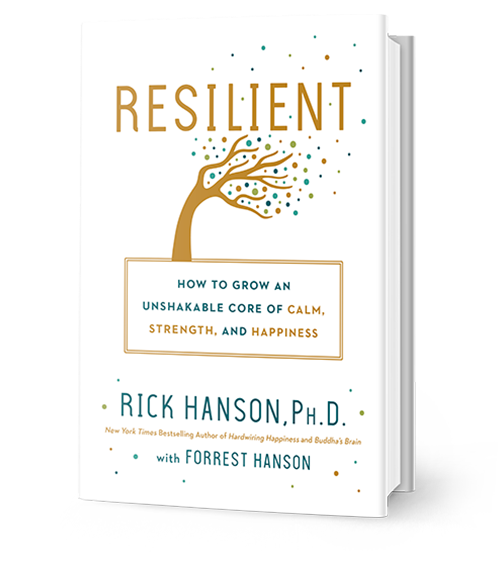Your brain is “Velcro for negative experiences and Teflon for positive ones,” according to neuropsychologist Dr. Rick Hanson. What if you could re-wire your brain to be more grateful, loving, and resilient? In today’s episode, Dr. Hanson offers strategies to use self-directed neuroplasticity changing your brain for the good and developing resilience and wellbeing. Dr. Hanson is a senior fellow at the UC Berkeley Greater Good Science Center, a pioneer in the field of positive neuroplasticity, and teaches how taking in moments of good can sculpt your brain for the better. Listen in to hear Diana and Rick Hanson embark on a heartfelt and deeply personal discussion about developing resilient wellbeing one day at a time. Dr. Hanson shares wisdom from his recent book Resilient: How to Grow an Unshakable Core of Calm, Strength and Happiness. Start developing key inner strengths like grit, compassion, and gratitude today!
The brain is continually being changed…the only question is, ‘is it being changed for the better and who is doing the changing?’
Rick Hanson
About Dr. Hanson

Rick Hanson, Ph.D., is a psychologist, senior fellow at the UC Berkeley Greater Good Science Center, and the founder of The Wellspring Institute for Neuroscience and Contemplative Wisdom. Dr. Hanson is also a meditation teacher and New York Times best-selling author of several books including Resilient: How to Grow an Unshakable Core of Calm, Strength and Happiness; Buddha’s Brain: The Practical Neuroscience of Happiness, Love, and Wisdom; and Hardwiring Happiness: The New Brain Science of Contentment, Calm and Confidence. Dr. Hanson has spent decades both researching and steeping himself in neuroscience, clinical psychology, and contemplative practices and is deeply committed to teaching people scientifically-validated methods to help them take charge of changing their brains for the better, from the inside out. Dr. Hanson received a B.A. from UCLA and his Ph.D. in Clinical Psychology from the Wright Institute.

+ show Comments
- Hide Comments
add a comment